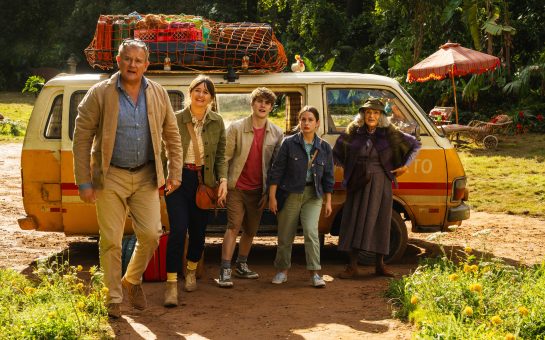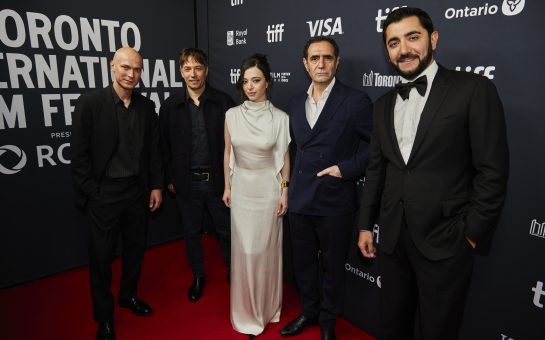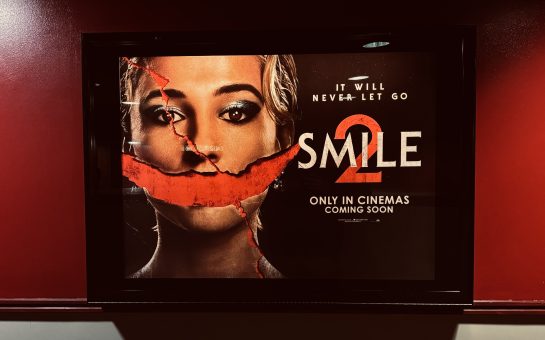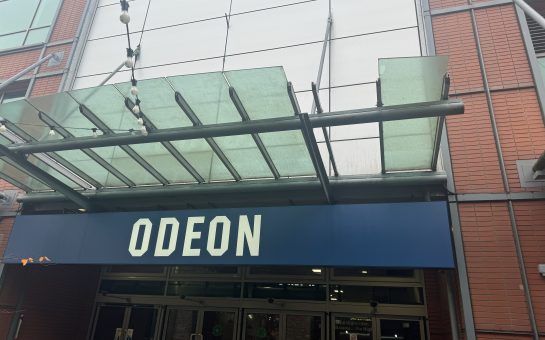A French crime drama centring around the murder of an elderly woman in a poor commune in the north of the country sounds like it has all the right threads to make a compelling story.
Instead, Arnaud Desplechin’s 13th feature-length effort feels like a bloated BBC pilot episode, to the extent that I spent most of the third act waiting for Keeley Hawes or Stephen Graham to turn up.
Based on the 2008 documentary Roubaix, commissariat central, affaires courantes and set in Desplechin’s home town, this is clearly a topic close to the director’s heart, although this passion fails to connect.
We start on Christmas night in Roubaix, Northern France. The weathered police chief Daoud (Roschdy Zem) is on patrol, in his short drive he finds a burning car and hears over the radio of a fight involving a knife at a house party.
The fight is stopped, but upon getting back to the station he has to take a statement from the man whose car was on fire. His story about a gang of Arabs attacking him with a blowtorch is sketchy at best.
Soon after he hears of a 17-year-old (Maissa Taleb) who has gone missing. From the tone of his voice we know instantly this isn’t the first time. Whilst we don’t get to know any of these characters in detail, we get a crystal clear picture of the world Daoud inhabits on a day-to-day basis.
Louis (Antoine Reinartz) is introduced as the second protagonist, the hard working new kid on the block, who’s been doing extra shifts to try to get a feel for the town. His almost naive enthusiasm is a cold antithesis to the rugged veteran Daoud, who through tired looks and glances it is clear as day has been working this beat for far too long.
The first hour of the film is fantastic. The two detectives work different cases but are always close, they investigate the criminal underbelly of the city to solve an arson, and the intrinsic socio-economic politics of a crime ridden and economically damaged area such as Roubaix forces itself to the front of the screen.
Multiple investigations take the stage briefly but the arson remains most prominent. Claude, played fantastically by Spectre star Lea Seydoux, and her girlfriend, Marie (Sara Forestier) are called in as witnesses. This investigation is captivating, the duo are unwilling to talk due to the gangs in the area, only treating the officers to a faint whiff of a lead at any point.
The various suspects called in are both comic and tragic, but this momentum doesn’t follow through to the second half of the film. A murder investigation takes centre stage and it begins to feel more and more like the filmmakers accidentally picked up a script for Silent Witness.
Interrogation scenes and reenactments of the crime scene feel rehashed and tedious in comparison to the bustling first 60 minutes. The politics fade into the background and any traction gained is swiftly lost as the film meanders towards an inevitable ending.
Three stunning performances from Lea Seydoux, Antoine Reinartz and Roschdy Zem, who all feel as if they have really lived these lives for decades, aren’t enough to give this crime drama a voice of its own in an already dominated market.
An extra hour to tie up all the loose ends, such as Louis and Daoud’s friendship, Daoud’s love of horses and the various other patrons of the police station’s stories may help, although that perhaps shows this story was better suited to be a mini series.
Main image courtesy of the Upcoming via YouTube, with thanks.



